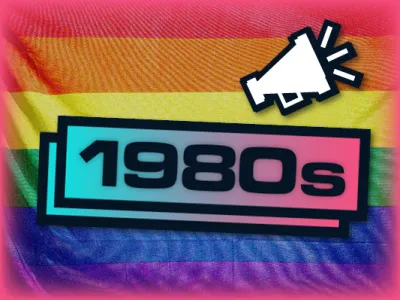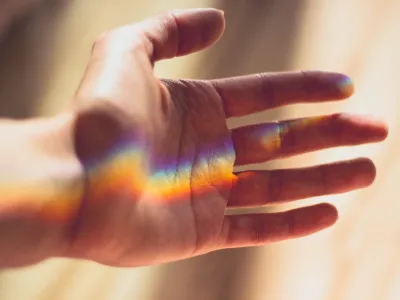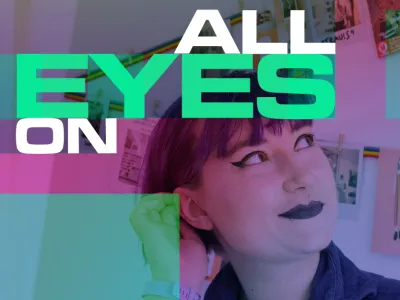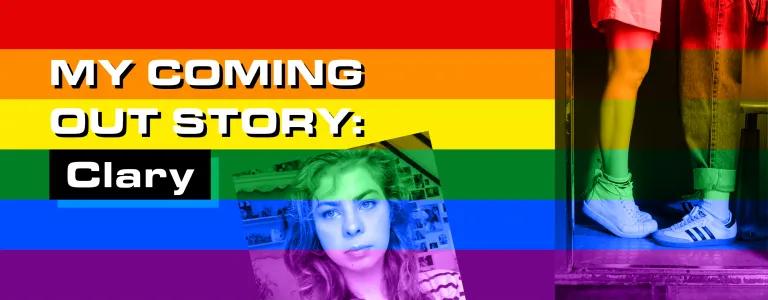
My Coming Out Story: Clary
Include this article in your Skills Builder Journal. It could help you develop... 

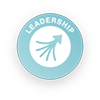
Welcome to our brand new series - Coming Out - where we’re going to be sharing your personal experiences and stories. Sometimes coming out can be easy, sometimes it can be difficult. Some people choose to tell their friends first, and then their family. Some people come out at an early age, some later in life. No matter how and when you do it, it’s important, and it’s part of who you are. And we’re here to celebrate that. First up, it’s Clary...
I had a really hard time writing this article, because I couldn’t choose between all the stories I remember about growing up, finding myself and becoming comfortable in my identity. To tell the truth, I’m still on that journey, and as I enter new spaces like university in the near future, I’ll have to navigate everything anew. My “coming out story” is less a great struggle about overcoming some specific, enormous obstacle, and more a selection of fragments from my childhood and teenage years which connect to my broader queer experience. It’s less of a clear picture and more of a stained glass window, each small piece part of something greater. I think that’s actually pretty common. Most people are defined more by a series of small experiences, especially when it comes to their sexuality and gender.
I remember being very young and listening to the radio on the drive home from school. A lesbian couple were talking about their experiences with civil partnerships and raising a child together, something I’d never really heard of before. I felt a really strange connection with these women, like we had something in common I didn’t have a name for. When I was in primary school equal marriage rights were still not legal in the UK, and I was too young to remember them actually passing in 2014.
When I saw Love, Simon in cinemas in 2018, I cried like a baby the whole way through. Again, I felt that common ground with someone - in this case, a character - that I experienced so rarely in my own life. I bought the book the film is based on and read it four times over. Simon’s story and my story were so similar and so different, and his experiences in the closet matched mine so closely, always feeling like you were carrying something around that was invisible but volatile.

I came out as gay when I was 12. Something about my unabashed boldness protected me, because nobody ever said anything - at least to my face - about it. When I moved schools for sixth form, I went back in the closet and realised just how different it was. The culture at my new school was more toxic in every way, and I heard other girls using ‘lesbian’ as a punchline within earshot of me for the first time in years. I kept quiet. I made one very close friend at that school, and they were my lifeline. They kept me going just by seeing me for who I really was, and they’re still one of my best friends.
I came out to my family not long after breaking up with my first serious-ish girlfriend. I’d planned a hundred and one ways of doing it, I’d written letters the day before I went to summer camp and then left them in my desk drawers, and I’d made speeches to myself in the mirror. The real thing was anticlimactic, I brought it up in conversation, then left the room as quickly as humanly possible.
The conversations that followed weren’t perfect. I was right in my estimate that my family weren’t, and perhaps wouldn’t ever be, on the same wavelength as me, even when they were doing their best to be supportive. Even the most well-intentioned family members have their own opinions about what’s best for you, and it can take time for them to see you the way you see yourself. But the more we talked about it, the more we understood each other and the easier it all became.
I sometimes wonder what it must be like for people who go around assuming that other people are on the same page as them, and who consider diversity a deviation, rather than a beautiful byproduct of our existence. I don’t think I would want to take human nature for granted in that way, really. I like being who I am.

We have a long way to go. Schools need more support for LGBTQ+ students, and a wider syllabus including the rich history of the LGBTQ+community in Britain. It’s painful to look out into the world and see these problems. But the future is worth fighting for, and progress is and will be made in the long term. We’re beginning to rebuild our community after the lost generation of the AIDS epidemic, and representation in the public eye is changing attitudes. Nicola Adams and Katya Jones formed the first same-gender couple on Strictly Come Dancing; new TV shows like It’s A Sin explore our history, and there’s also mainstream representation in shows like Doctor Who.
We’re moving in the right direction, and I have every faith that we can make a real difference in the lives of LGBTQ+ youth in the near future.
If you feel like you need some help with coming out, why not take a look at Stonewall’s advice.



